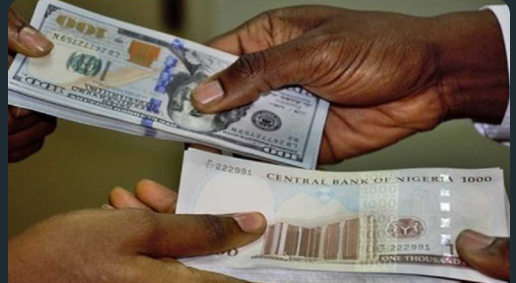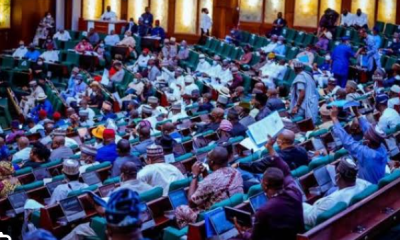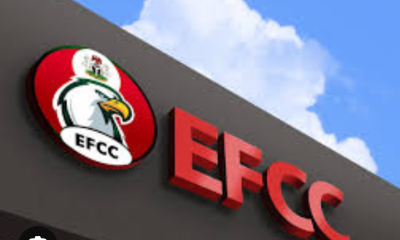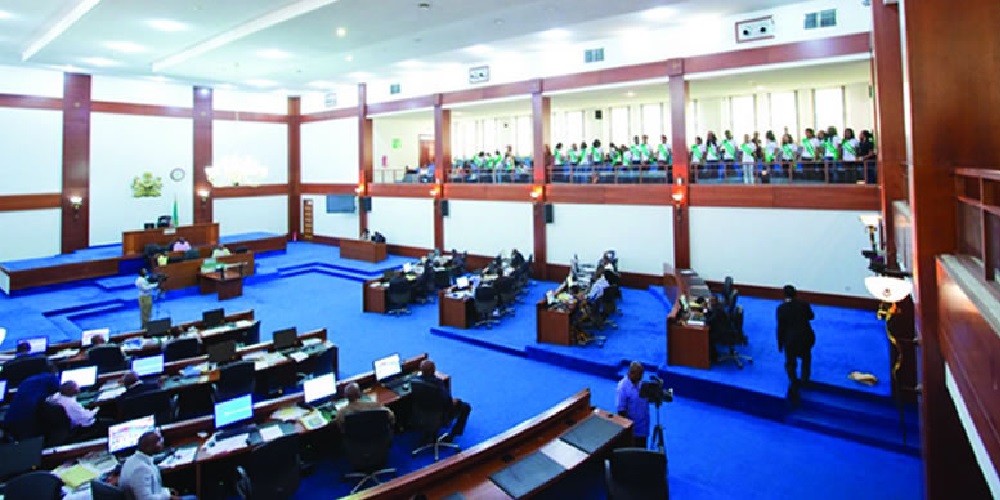Economy
SEE Today’s Black Market Dollar (USD) To Naira (NGN) Exchange Rate – January 15, 2025

What is the Dollar to Naira Exchange Rate in the Black Market (Parallel Market/Aboki FX)?
Below is the black market Dollar to Naira exchange rate for January 14, 2025. You can exchange your dollars for Naira at these rates:..
Black Market Dollar to Naira Exchange Rate (Aboki FX):
Buying Rate: ₦1650
Selling Rate: ₦1660
According to sources at Bureau De Change (BDC) outlets, the exchange rate in the Lagos parallel market shows that players are buying dollars for ₦1650 and selling for ₦1660 on Tuesday, January 14, 2025.
It is important to note that the Central Bank of Nigeria (CBN) does not recognize the parallel market and has directed individuals seeking foreign exchange (forex) to approach their banks.
CBN Official Dollar to Naira Rate
Highest Rate: ₦1560
Lowest Rate: ₦1545
Please note that the forex rates mentioned in this article may vary depending on location and market conditions.
Rising Fuel Prices in Nigeria
Meanwhile, the cost of loading Premium Motor Spirit (petrol) and other refined petroleum products at depots surged on Monday, raising concerns about potential increases in pump prices across the country.
According to The PUNCH, oil marketers increased depot prices for petrol and diesel by ₦43 (4.74%), driven by rising crude oil prices. Brent crude, the global benchmark, reached $79.76 per barrel on Sunday, fueling the cost hike.
Several depots adjusted their petrol loading prices:
Swift Depot: ₦950 per litre (up from ₦907)
Wosbab Depot: ₦950 (up from ₦909)
Sahara Depot: ₦950 (up from ₦910)
Shellplux Depot: ₦960 (up from ₦908)
Chipet Depot: ₦960 (up from ₦908)
Other depots followed suit:
Nipco Depot: ₦950 per litre (up from ₦912)
Matrix Warri Depot: ₦945 (up from ₦925)
Economy
SEE Current Black Market Dollar (USD) To Naira (NGN) Exchange Rate

Current Black Market Dollar (USD) To Naira (NGN) Exchange Rate
As of Tuesday, May 13, 2025, the exchange rate for the U.S. dollar to the Nigerian naira at the Lagos Parallel Market commonly known as the black market or Aboki FX—stands as follows:
Buying Rate: ₦1,630 per dollar
Selling Rate: ₦1,635 per dollar
This information is based on data obtained from traders at Bureau De Change (BDC) outlets in Lagos.
Important Notice:
The Central Bank of Nigeria (CBN) does not recognize the black market as an official channel for foreign exchange transactions. Individuals and businesses seeking to access forex are advised to go through authorized financial institutions, such as commercial banks.
Dollar to Naira – Black Market Rate Today
Exchange Type Rate (₦)
Buying ₦1,630
Selling ₦1,635
Dollar to Naira – CBN Official Rate
At the Central Bank of Nigeria’s official window, the dollar exchanged at varying rates today:
Highest Rate: ₦1,610
Lowest Rate: ₦1,597
Note:
Foreign exchange rates may differ depending on location, volume, and the dealer. The figures provided here are for informational purposes and may not reflect the exact rates offered to buyers or sellers in real-time.
Economy
CBN launches new platform, targets $1bn monthly diaspora remittances

The Central Bank of Nigeria, in collaboration with the Nigeria Inter-Bank Settlement System, has launched the Non-Resident Bank Verification Number platform, an initiative aimed at enhancing financial access for Nigerians in the diaspora.
The platform, which enables Nigerians abroad to obtain their Bank Verification Number remotely, removes the need for physical presence in Nigeria.
Speaking at the event in Abuja on Tuesday, CBN Governor, Mr. Olayemi Cardoso, described the platform as a key milestone in the country’s financial inclusion journey.
He noted that the NRBVN would ease the long-standing challenges faced by Nigerians in the diaspora who previously had to be physically present in Nigeria for BVN registration.
“For too long, many Nigerians abroad have faced difficulties accessing financial services at home due to physical verification requirements,” Cardoso said. “The NRBVN changes that. Through secure digital verification and robust Know Your Customer processes, Nigerians worldwide will now be able to access financial services more easily and affordably.”
The governor added that the NRBVN was not just a solution for financial access, but a step towards a more inclusive, innovative, and prosperous financial ecosystem.
“We are building a secure, efficient, and inclusive financial ecosystem for Nigerians globally,” he remarked. “This platform is not just about financial access, it’s about national inclusion, innovation, and shared prosperity.”
Cardoso also highlighted the growth in remittance flows, which increased from $3.3bn in 2023 to $4.73bn in 2024. He attributed this rise to recent reforms, including the introduction of the willing buyer, willing seller FX regime.
With the launch of the NRBVN, the CBN is targeting $1bn in monthly remittances.
“With the introduction of NRBVN and complementary policy measures, we are optimistic about achieving our ambitious target of $1bn in monthly remittance flows, a goal we believe is entirely achievable given the growing trust and convenience in formal remittance channels,” Cardoso said.
The event also featured a presentation by the Managing Director/CEO of NIBSS, Mr Premier Oiwoh, who detailed the technical and operational aspects of the NRBVN platform.
Oiwoh emphasised that the platform adheres to global standards, incorporating stringent Anti-Money Laundering and KYC compliance protocols to ensure transparency and security.
The Deputy Governor, Economic Policy, CBN, Mr Muhammad Abdullahi, also addressed the gathering, describing the NRBVN as a transformative tool for enhancing the banking experience for Nigeria’s diaspora.
He urged stakeholders to collaborate in refining the platform to meet the evolving needs of the diaspora community.
He further emphasised that the initiative would strengthen economic ties between Nigeria and its global citizens, and ultimately drive sustainable economic growth.
“Together, we stand at the threshold of a new era, poised to deepen the trust, enhance remittance growth, and forge a stronger, more meaningful connection between Nigeria and its global citizens,” Abdullahi said.
The NRBVN platform is part of a broader framework that includes the Non-Resident Ordinary Account and Non-Resident Nigerian Investment Account, which provide Nigerians in the diaspora with access to savings, mortgages, insurance, pensions, and investment opportunities in Nigeria’s capital markets.
Under current regulations, diasporans will have the flexibility to repatriate the proceeds of their investments.
The launch of the NRBVN platform marks a crucial step in the CBN’s efforts to improve financial inclusion and harness the economic potential of Nigeria’s diaspora.
Economy
SEE Black Market Dollar (USD) To Naira (NGN) Exchange Rate Today 12th May 2025

Below is the black market exchange rate for the US Dollar to Naira as of Sunday, May 11, 2025. These are the rates at which you can exchange your dollars for naira.
Black Market Dollar to Naira Exchange Rate (Aboki FX)
According to sources at the Bureau De Change (BDC) in Lagos, the dollar was bought at ₦1625 and sold at ₦1630 on Sunday, May 11, 2025.
Important Notice:
The Central Bank of Nigeria (CBN) does not officially recognize the parallel market, also known as the black market. The CBN advises anyone seeking foreign exchange to do so through their commercial banks.
Dollar to Naira Exchange Rates Today
Market Type Buying Rate Selling Rate
Black Market (Aboki) ₦1625 ₦1630
CBN Official Rate ₦1608–₦1614 –
Please note: Exchange rates may differ depending on the vendor or location, and the rates presented here might vary slightly from the actual rate at the point of transaction.
-

 Opinion19 hours ago
Opinion19 hours agoHuman Capital Devt: The Rep Paul Nnamchi
-

 News13 hours ago
News13 hours agoAlleged cyber bullying: IGP re-arraigns VDM
-

 News15 hours ago
News15 hours agoBREAKING: PDP, NNPP Rep members abandon parties, lace boots with APC
-

 News19 hours ago
News19 hours agoSEE Current Black Market Dollar (USD) To Naira (NGN) Exchange Rate
-

 News19 hours ago
News19 hours agoNnamdi Kanu’s family wants court to ban NAN coverage of son’s trial or allow live streaming
-

 News12 hours ago
News12 hours agoBill To Make Voting Compulsory For Nigerians Passes Second Reading
-

 News19 hours ago
News19 hours agoPDP Summons Emergency Meeting As South-East Threatens Exodus
-

 News18 hours ago
News18 hours agoAlleged scam: Coalition wants EFCC to charge ex-Chairman, Bawa to court immediately

















